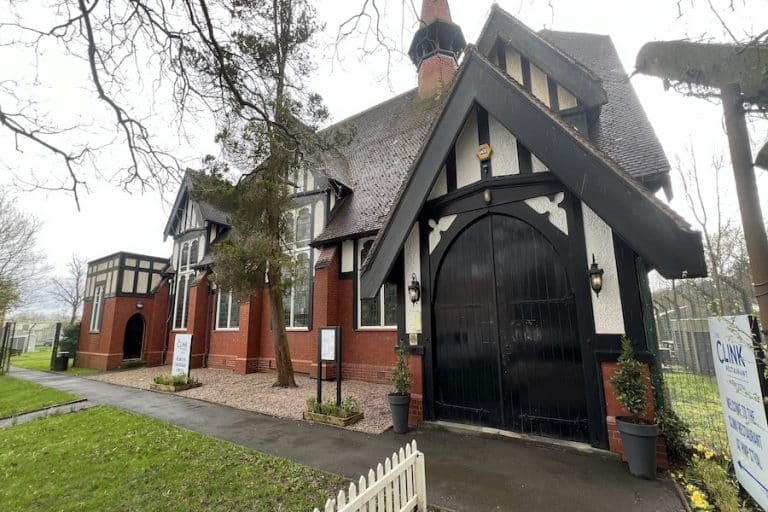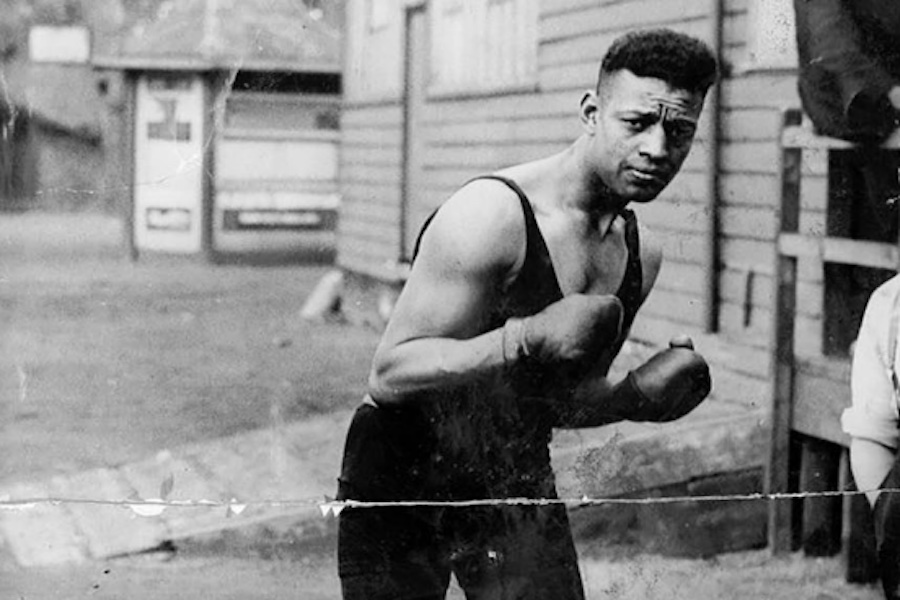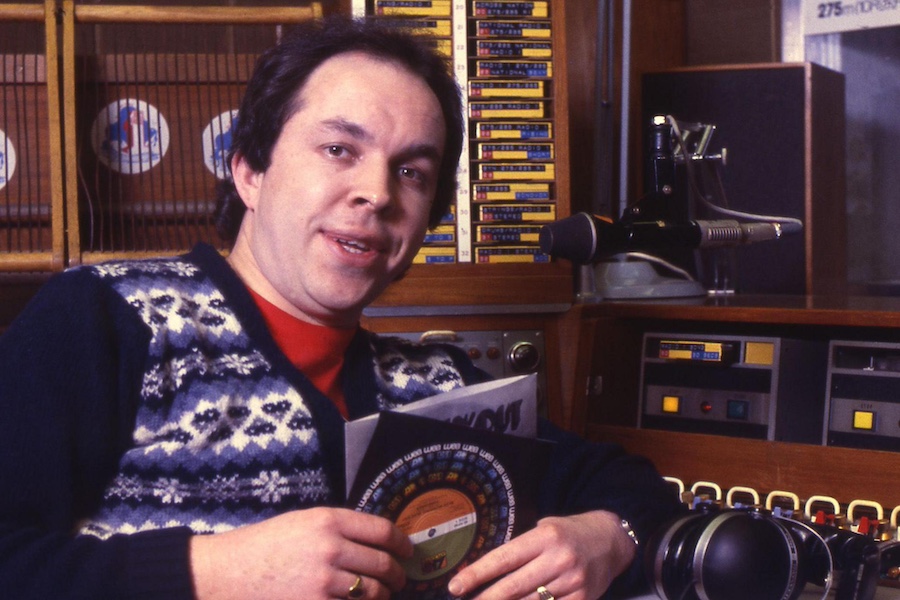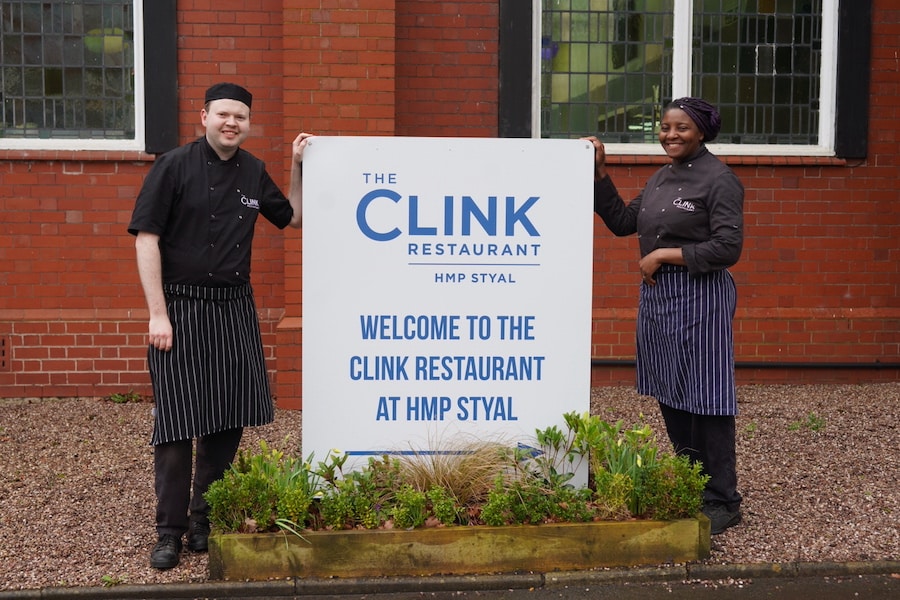Birthplace of Manchester’s own Factory Records gets a blue plaque
- Written by Emily Oldfield
- Last updated 8 years ago
- City of Manchester, Music, Sport
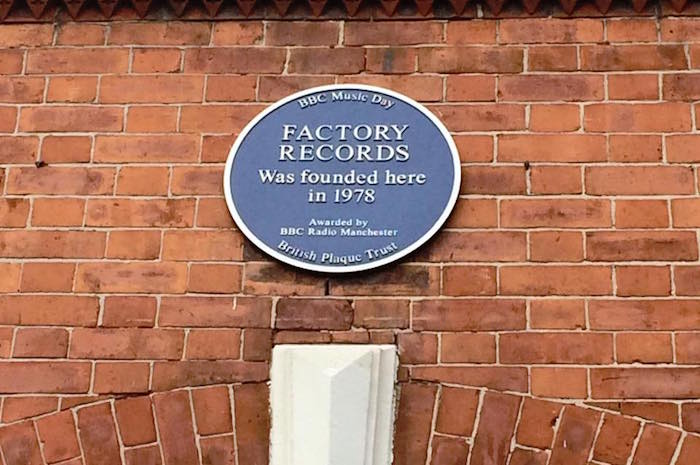
A blue plaque has been unveiled at the birthplace of one of the world’s most famous record labels – 86 Palatine Road, West Didsbury, where Factory Records co-founders Alan Erasmus and Tony Wilson set up a makeshift office.
The plaque was one of 47 unveiled up and down the country as part of BBC Music Day, with a number of famous faces in attendance including Shaun Ryder, Peter Saville, Mayor Andy Burnham and Rowetta, wearing a Hacienda-inspired dress.
This Didsbury flat was the focal point of much creativity, from planning the Hacienda club which opened on Whitworth Street West in 1982 to arranging some of the most elaborate music merch of all time.
Factory Records used Palatine Road as a base and office for a number of years, with their FACT 400 release Palatine, The Factory Story/1979-1990 in apparent tribute.

Although the label later moved to One Charles Street, the energy of the early days at Palatine Road had a massive influence and is partially captured in the film 24 Hour Party People in which Tony Wilson is played by Steve Coogan.
Who would have thought what started out as a homegrown label would go on to sign some of the city’s most iconic musicians including New Order and the Happy Mondays?
The homemade, creative ethos made Factory Records distinct. It was one of the only labels to have a cataloguing system which numbered not just musical releases, but label-made artwork and other items too. Even Tony Wilson’s coffin has a number – FAC 501.
But the ethos also added to its demise as big-name artists such as Happy Mondays and New Order owned all their own work in the 90s whilst the label lost money and was declared bankrupt by 1992.
What the label never lost was its significance. Its unique sound and look went on to become highly influential.
“For releasing Joy Division alone would make Factory records one of the most important record labels of all time,” says John Robb, author, bass player and vocalist of The Membranes and founder of music magazine Louder Than War.
“But add to that Happy Mondays, A Certain Ratio and Section 25 then you have got a perfect blue plaque label.
“Even the bands you forget about still sound like the future, and the whole beautifully packaged, musically heavyweight operation not only changed the face of music and proved you could make high art wherever you lived, but was also the spark and catalyst that changed the way Manchester thought of itself.”
- This article was last updated 8 years ago.
- It was first published on 16 June 2017 and is subject to be updated from time to time. Please refresh or return to see the latest version.
Did we miss something? Let us know: press@ilovemanchester.com
Want to be the first to receive all the latest news stories, what’s on and events from the heart of Manchester? Sign up here.
Manchester is a successful city, but many people suffer. I Love Manchester helps raise awareness and funds to help improve the lives and prospects of people across Greater Manchester – and we can’t do it without your help. So please support us with what you can so we can continue to spread the love. Thank you in advance!
An email you’ll love. Subscribe to our newsletter to get the latest news stories delivered direct to your inbox.
Got a story worth sharing?
What’s the story? We are all ears when it comes to positive news and inspiring stories. You can send story ideas to press@ilovemanchester.com
While we can’t guarantee to publish everything, we will always consider any enquiry or idea that promotes:
- Independent new openings
- Human interest
- Not-for-profit organisations
- Community Interest Companies (CiCs) and projects
- Charities and charitable initiatives
- Affordability and offers saving people over 20%
For anything else, don’t hesitate to get in touch with us about advertorials (from £350+VAT) and advertising opportunities: advertise@ilovemanchester.com

Head down the rabbit hole for Adventures in Wonderland with Z-arts

Major rail investment set to transform Manchester-Leeds commutes

“His presence will be deeply missed” Children’s hospice bids farewell to their visionary CEO

Has Gordon Ramsay created Manchester’s ultimate bottomless brunch?

The Clink celebrates ten years of empowerment and second chances
